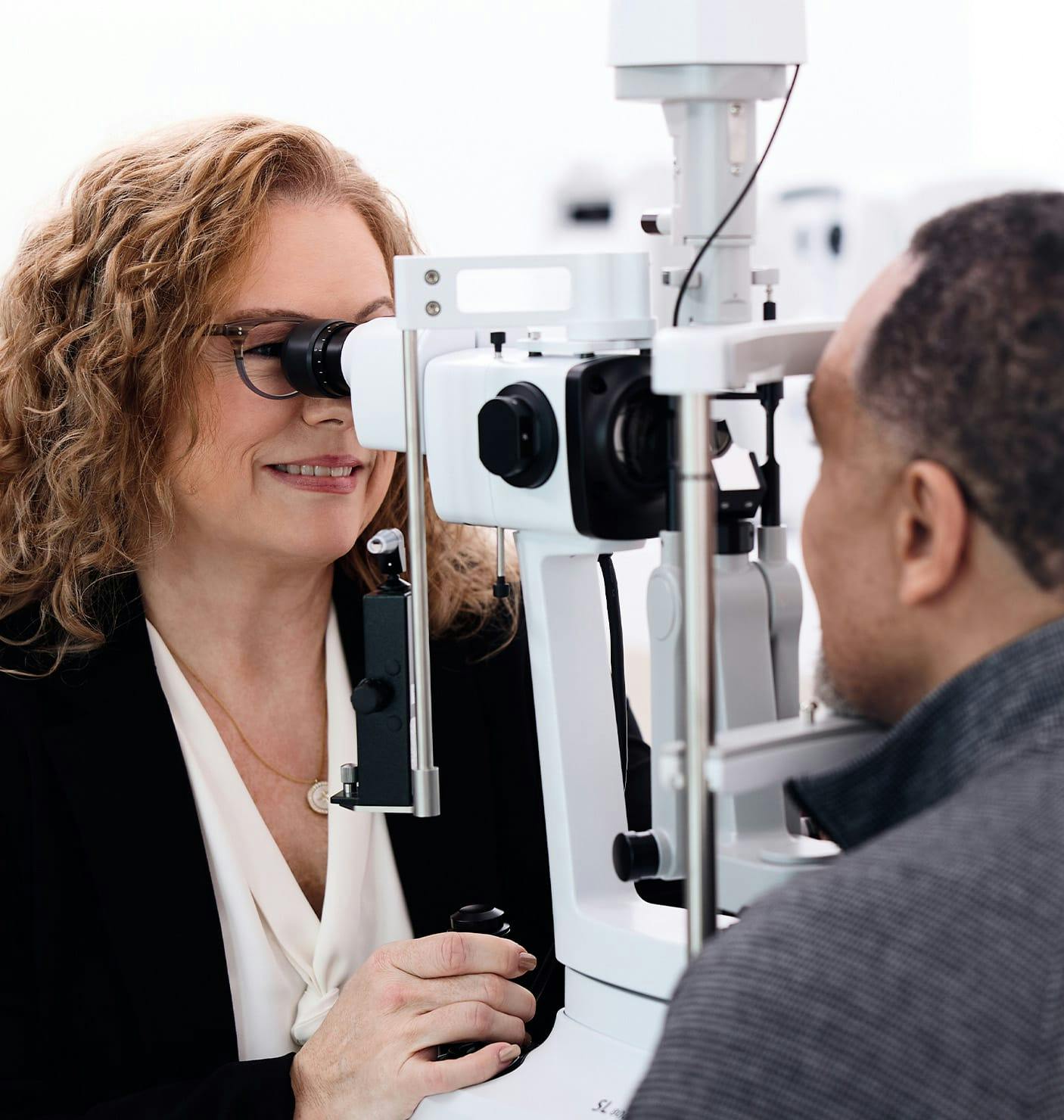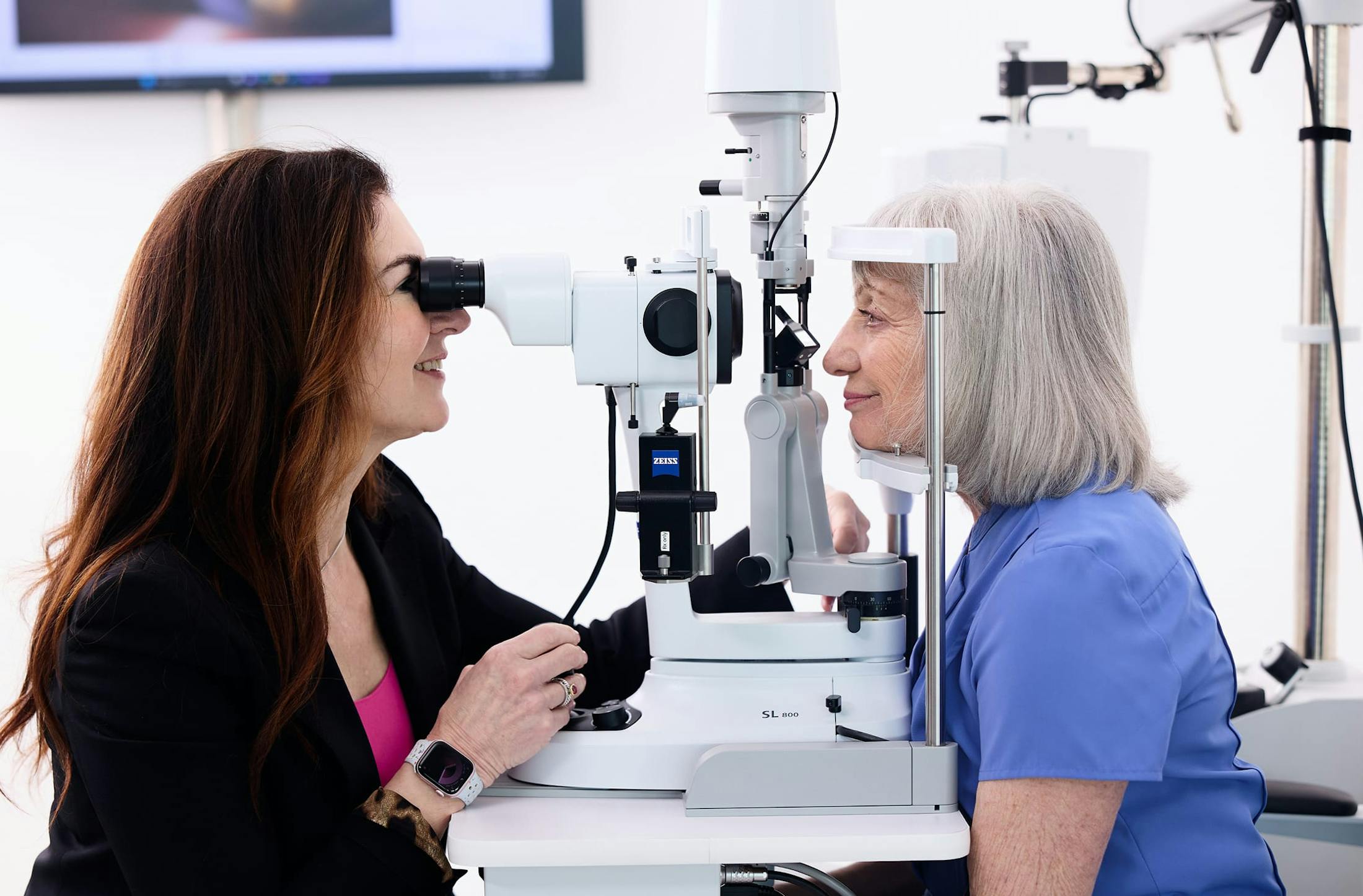If your vision has become increasingly distorted or blurry, advanced keratoconus treatment in Seattle can help stabilize and sharpen your sight, preserving your ability to see the world clearly and confidently.
What Is Keratoconus?
Keratoconus is a progressive corneal disease that causes the normally round cornea to become thin and cone-shaped. This leads to blurry, distorted vision, light sensitivity, and difficulty with night driving. At Bellevue Precision Vision, we offer a range of keratoconus treatment options in Seattle and Bellevue to slow or stop progression and improve visual clarity, including the following:
- Corneal Cross-Linking (CXL): The only FDA-approved procedure to slow or stop keratoconus progression.
- CTAK Procedure: A specialized corneal procedure designed to improve vision in keratoconus patients.
- EVO ICL Surgery: Implantable Collamer Lenses that provide high-definition vision for those with severe nearsightedness.
- Corneal Transplants DALK (partial thickness) or PK (full thickness transplants): For advanced cases where vision cannot be corrected with other treatments.












